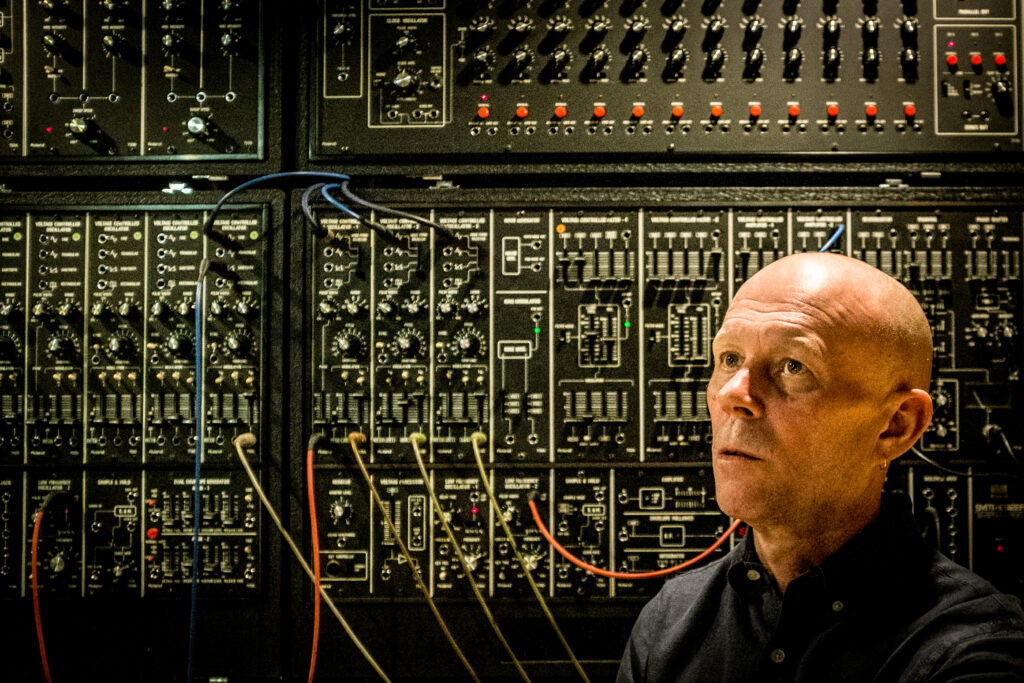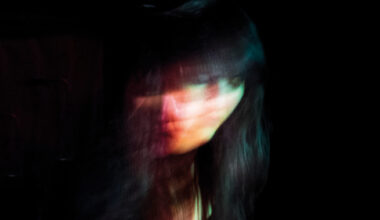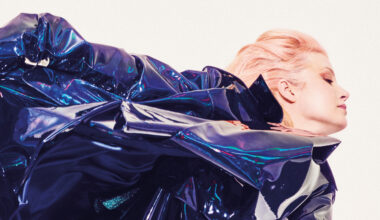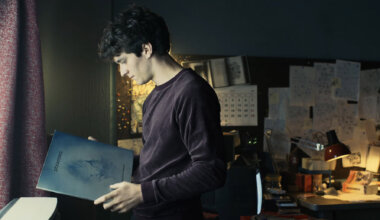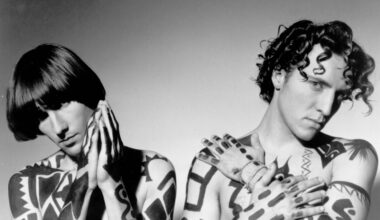The first time that Vince Clarke met Daniel Miller, the Mute boss told him he didn’t like Depeche Mode’s demo tape. Thankfully, the Basildon boys got a second chance to impress, as the Depeche/Yazoo/Erasure keyboardist recalls in this first person account of his long and fruitful creative relationship with Mute
“I remember Dave Gahan and I went up to London with our Depeche Mode demo cassette. We went to various record companies that day – this was when you could go into an A&R department and they would play your demo there and then in the office. One of our ports of call was Rough Trade, which back then was a shop with an office on top. We played our track to Geoff Travis and he said, ‘It’s not really our cup of tea, but this guy might be interested’. And that was Daniel Miller, who’d just walked in at that very moment. He said he didn’t like it and left again. That was the first time we met Daniel.
“The second time we met him, we were playing at The Bridge House pub in east London where we’d play once a week for half an hour. On one of the nights we were supporting Fad Gadget. We’d done the show, and we were in the dressing room, and Daniel came backstage. Stevo, who ran Some Bizzare Records, was also there and he goes, ‘I can get you a support slot with Ultravox,’ and Daniel says, ‘I can offer you a single deal with Mute – are you interested?’. We had to really think about it because the idea of playing with Ultravox was huge. But we decided that we would go with Daniel and that’s how it all kicked off for us with Mute.
“We weren’t really close to Daniel at first. It took years to get to know him because he’s a very shy person. In the beginning, he wasn’t just our producer, he was also our driver because he was the only person we knew who had a car, I think it was a Peugeot estate. He also did our sound at gigs and he’d try to get our money from the promoter if there was a problem.
“Mute was almost a one-man band then. He had this lady working for him called Hilde Svengard, because when Mute actually started making some money, he decided that he’d need to get someone to do the accounts. So he employed Hilde and immediately gave her a Sainsbury’s plastic bag full of receipts. Those were the Mute accounts.
“As well as producing us, he was also producing Fad Gadget. While he was relatively new in the music business, he knew his electronic music stuff. He was a big Cabaret Voltaire fan, and he knew the noisier, more industrial side of electronic music. He’d been a DJ when he was 19 or 20 and that’s where it all came from. He DJed in one of those really expensive ski resorts in Switzerland just so he could make enough money to ski the next day.
“With Depeche he certainly gave us a lot of direction. The songs were written, pretty much, but he helped us with sounds because we were completely clueless. We’d never seen a sequencer, and we’d never been into a professional recording studio before. It was all new, and he was our guide. Eric Radcliffe was also a huge influence on us, and on Daniel as well. Between them they worked out different techniques like how to sync things. I wasn’t standing there in the studio going, ‘What about my sound? It’s really good’. We were just really receptive to what he had to say.
“I think Daniel was fine when I left Depeche and set up Yazoo with Alison Moyet. It wasn’t a big deal to him. With the two Yazoo records he’d visit us at Blackwing Studios, giving us advice or making suggestions. We had Eric Radcliffe as our engineer, who was brilliant technically, then there was Daniel, and then there was Alison and I, who knew nothing. When we recorded ‘Don’t Go’, there was a bit in the middle of every verse, like a bridge, that Daniel suggested we add. I didn’t resent him for that, because he was more experienced and more skilled than I was.
“Andy Bell and I spent a lot of time making the first Erasure album ‘Wonderland’, and when it didn’t do very well, I know Daniel was concerned. I was concerned up to a point myself as well, because I went out and got myself a side job working with Geoff Wayne Music making jingles for adverts. I thought I’d cover my arse, you know. But Mute were really good about it, Daniel still let us make the second Erasure album. Mute were already splashing out for the recording time, because it wasn’t like we had our own home studios or anything, like I have today. So to give them full credit, they did back us up, and Daniel obviously had some faith. He stood by everyone who was signed to Mute. I think it’s because he’s sincere. He’s a guy who wouldn’t think of letting you down, not because it would upset the band, but because it wouldn’t be the right thing to do. The artists on Mute, especially in the early days, they were his children.
“Daniel was still A&R-ing us, even when we worked with other producers. When he sold Mute to EMI we still only dealt with Daniel, we didn’t deal with EMI at all. To us, they were just the people who distributed the records. I mean, if someone from EMI had come into the studio and told us to change something on one of our songs, like Daniel had done on ‘Don’t Go’, I would have ignored them.
“I set up my own label, Very Records, in 2015. I like to think that Daniel and I both want to do the right thing by the artist. In other words, you don’t just go, ‘Oh that’s not selling anything so I’m going to ditch that guy’. And if someone brings you some songs that perhaps aren’t how you imagined they would be, you advise them and you suggest they might change this, or change that, and you make it into a better record. That’s a natural human thing to do when you care about the artist. It’s like ditching friends – you just don’t do it.
“What I really liked about Daniel, and what I still like about working with him now, is that he does come up with things you just wouldn’t think of. I mean, we presented him with the most recent Erasure record, ‘World Be Gone’, and I could see he wasn’t happy, that he wasn’t that sure about it. Then he came up with a few suggestions, and we changed it, and it sounded better and that was that. It’s his label, and it’s his passion. It’s still his baby.
‘Hello Science’, the new album by Reed & Caroline, is released by Vince Clarke’s Very Records
